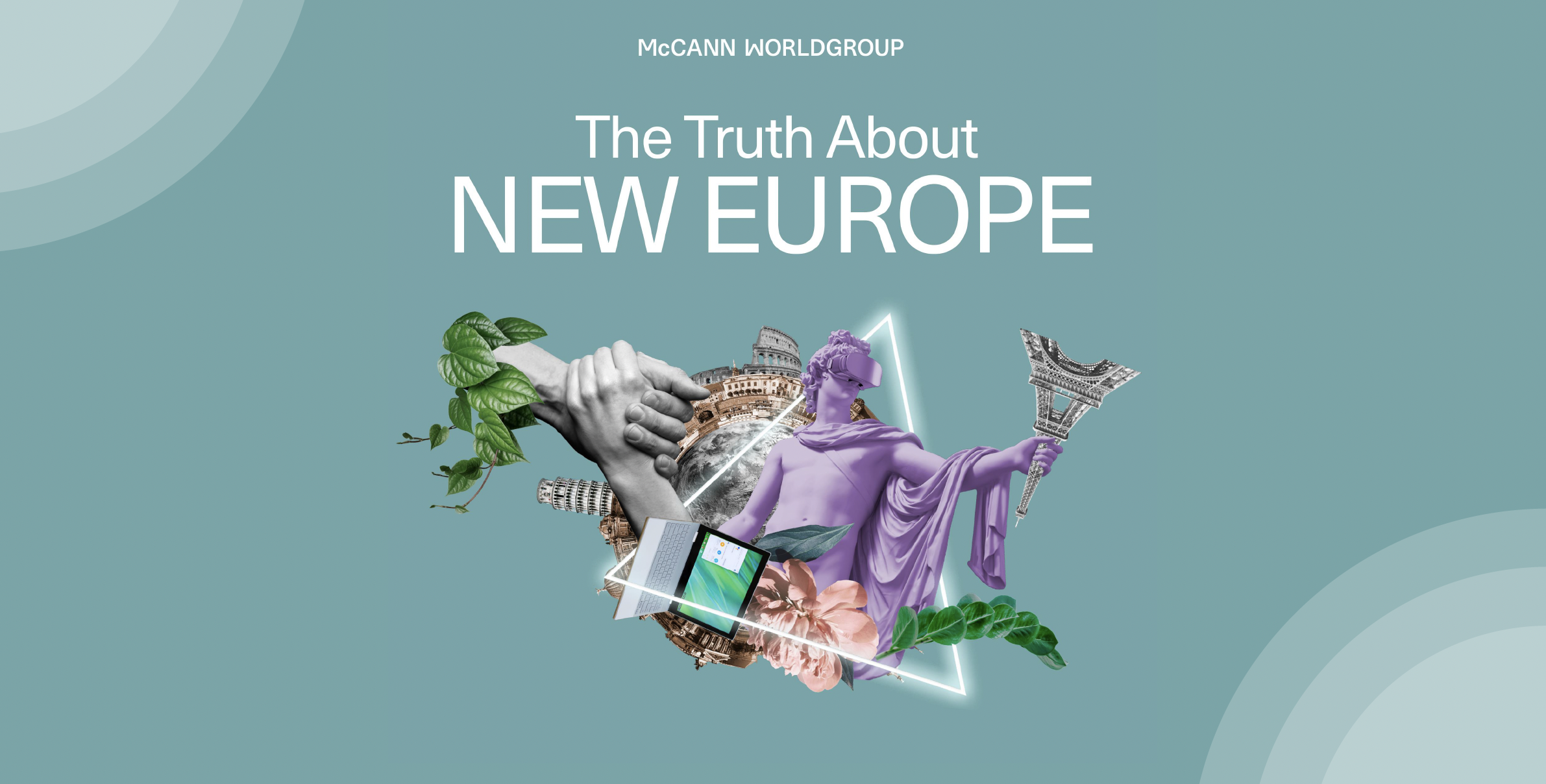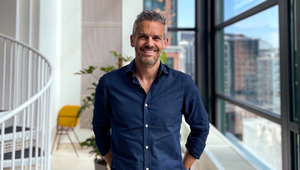
The Truth about New Europe: The End of Europe’s Golden Age?

54% of Europeans believe that Europe has already passed its ‘golden age.’
Or at least, that is what we at McCann Worldgroup found in our recent study, The Truth about New Europe. We interviewed 27,000 Europeans, across 18 markets, to uncover what Europeans are really thinking, and what might be next. And there were some differences of opinion when it came to feeling hopeful about Europe’s future, what they are really thinking, and what might be next.
Europe’s Golden Age: Past, Present of Future?
The belief that Europe’s ‘Golden Age’ is in the past has evolved since our previous wave of research in 2018. In France, it has risen from 47% to 59% and in Germany from 51% to 67% – while in the UK the majority remain fixed on the past (58% to 55%). After the last few years of Brexit, the pandemic, energy and financial crises, and an ongoing war in Ukraine, it’s easy to see why some countries are more pessimistic.
But not everyone across Europe is feeling gloomy and although over half of Europeans surveyed feel that the region’s ‘Golden Age’ has passed, there is optimism in some key markets. In Spain, 50% of people say that Europe’s golden age is happening now or is yet to come, and this rises to a majority of 63% in my native Denmark.

The story behind the data
At MRM we are obsessed with data, so naturally I wanted to know what is going on with these stats. My experiences living and working across Europe - in Denmark, France, Italy, Germany, and the UK - have given me a unique perspective into the study’s findings.
It makes sense to me, as a Danish person, that Denmark is positive about the future. "We” have a history of strong economic performance, a mature social welfare system, political stability, a strong commitment to the EU, and a drive and emphasis on sustainability and circularity. Ingrained in the Danish people are things like trustworthiness, commitment to social equality, a keen sense of community and openness – all characteristics that lean into an optimistic view around the future of Europe. “We” feel strongly about community and social cohesion – traits that suggest we believe in the sum of parts for greater goods.
For Germany, France, and the UK, the shape of the “European dream” has been tested, and compared with the past, Europe’s financial, cultural, and creative powers appear to be waning. From a German perspective several factors play a role in this vision: the impact of the country’s previous relationship with Russia and its dependence on Russian oil (in the context of the Ukraine war), the loss of Angela Merkel (someone with a global profile); and questions about reliance on its manufacturing sector in the digital age.
Managing consumer expectations
There are a variety of geopolitical factors that govern how hopeful Europeans feel, but there is a shared belief that organisations could do more. 7 out of 10 people believe that brands and businesses should play a greater role in bringing Europe together. For businesses operating across Europe, there is a huge opportunity to provide a renewed sense of hope through practical action.
There is a clear consumer expectation for brands in Europe to demonstrate leadership. Consumers are expecting more from the companies they engage with, and I believe the brands that will flourish are those that can meet, and exceed, their consumers’ expectations. Consumers expect companies in Europe to behave as a unifying force for societal good, and companies looking to future-proof their businesses need to be strategic in the behaviours they engage with, and the role they play in people’s lives to meet these expectations.
If considering consumers’ expectations is the key to success, then it’s clear from our research that if we want to secure a more optimistic outcome for the region, we will need to engage with gen z. Our study revealed they have a huge appetite for opportunities outside of Europe. Almost half of the UK’s gen z are looking outside the region in the pursuit of a better future. Losing half a generation is a scary thought, with a potentially devastating impact on the industrial sector and our talent streams.
However, this also gives us a real purpose when it comes to our business strategies, and raises the question: how do we continue to build strong relationships with our younger generations and become attractive and meaningful in their lives?
Although almost half of Europe’s gen z wish to leave the region, they’re also excited to work for major brands, many of which are headquartered in Europe. 55% of gen z say their dream is ‘to work for a major international company or brand’, rising to 65% in Denmark, 66% in the UK and 67% in Italy (with France and Germany on par with the regional average). If we’re serious about ensuring that the future of Europe is golden, then we need to listen to the next generation.

Listening to the next generation
From a business perspective, an obvious starting point for listening to gen z about areas of improvement is in our talent attraction and retention. We know gen z wants to work for European brands and one way of keeping them in Europe is to make it a place where they feel fulfilled. This requires a diverse approach to talent and creating an aspirational workplace. By redefining our workplace standards, we can make them places where people can derive true meaning.
Ultimately, if we want to make Europe an attractive place to live and work then we need to be more ambitious in how we attract gen z. Align ourselves with their values will be key and only then will we be able to connect with them and convince them that there is a better future closer to home.
In conclusion: a new golden age
There is some pessimism about the sun setting on Europe’s golden age but given my experiences of living and working across Europe, I believe there is great hope for the future.
The data shows us that 7 out of 10 people believe that brands and businesses should play a greater role in bringing Europe together, and by focusing on building relationships and listening to the next generation we can futureproof our organisations. Gen z want to work with us, and by taking a radical approach to workplace cultures we can help secure an optimistic version of Europe’s future.
Key actionable insightsBrands and businesses looking to futureproof their organisations in Europe should lean into consumers’ expectations:
|
Methodology
McCann Worldgroup’s Truth About New Europe 2023 study was conducted by McCann Worldgroup Truth Central, the organization’s global intelligence unit, this large-scale quantitative study surveyed more than 27,000 people in 18 countries across two waves (August 2018 and September 2022).
Read more about our study here.
Rikke Wichman- Bruun, Chief Executive Officer, MRM UK
A strong believer in putting people first, Rikke is an open-minded and transparent leader. Honest and to the point, she inspires those around her with her frankness and focus. With over twenty years’ experience, Rikke is dedicated to building enduring client relationships while bringing the best out of those around her.
Rikke has worked across a wide range of businesses, industries and sectors – from FMCG, to Automotive, to FS and manufacturing and has worked at Arc, AMV BBDO, Ogilvy, Saatchi & Saatchi, 360i (Dentsu) and Oliver and therefore has a truly integrated skillsets having touched almost every point within the consumer journey – from advertising to media and most things in between.
















